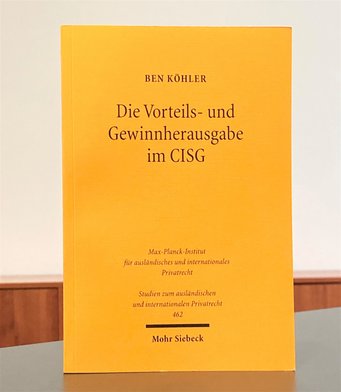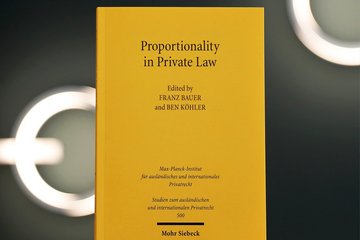Gain-based remedies in the CISG
A Contribution on the Permissibility and Limits of an Independent Development of the Convention
Should a party be allowed to keep the profits generated by its own breach of contract? In recent years this question has been the subject of considerable controversy in many jurisdictions. The discussion has now reached the CISG as well. Ben Köhler, Senior Research Fellow at the Institute, examines in his doctoral dissertation the role that gain-based remedies can play in the uniform sales law.

The text of the UN Convention on Contracts for the Sale of Goods (CISG) does not expressly recognize any gain-based remedies for the breach of contract. A supplementation or reform of the Convention is not an option, as this would require either a diplomatic conference and the ratification of a protocol or a new Convention. Any attempt to find a solution for the redistribution of profits gained by breach of contract within the Convention is tantamount to walking a tightrope as the need to keep pace with the recent developments in international commercial law stands in tension with the necessary restraint in order to maintain international uniformity in the application of the Convention.
Against this background, Ben Koehler considers the normative reference points in the Convention’s provisions and general principles. He first examines the gain-based remedies in the provisions on the consequences of avoidance and the preservation of goods, before turning to claims for the disgorgement of profits for breach of contract. Since these claims are not expressly regulated, he attempts to identify the relevant criteria for and the limits of a further development of the Convention.
Image: © Max Planck Institute for Comparative and International Private Law











